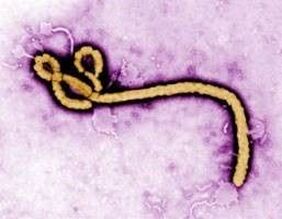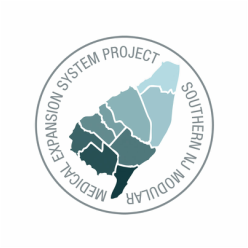PORTFOLIO: DISASTER PREPAREDNESS
|
Delaware Division of Public Health COVID-19 After Action Report
COVID-19 has resulted in a state of response and Delaware State of Emergency since February 2020. The Delaware Division of Public Health (DPH) has been actively responding to the spread of the disease since December, activating the State Health Operations Center (SHOC) in February 2020. DPH engaged Delta to conduct a two-phase survey to evaluate how healthcare systems, organizations, and providers have responded to COVID and best practices for COVID vaccine allocation, distribution, and administration. From April – October 2020, Delta disseminated a smart survey that provided a single link to over 400 individuals that allowed for the individual taking the survey to only answer the questions related to their position and of relevance to them. The survey was distributed to hospital systems, long-term care facilities, community health providers, and various departments within the DPH, among other survey participants. Delta synthesized the data to provide the components of the lessons learned, best practices, and areas for improvement identified in the body of the After Action Report. This process allowed Delta to prioritize focus groups for follow up interviews and develop specific targeted questions to fully understand the situation. Along with utilizing the survey results to develop the content of the After Action Report, Delta also developed survey summaries of the results from each subgroup who participated in the survey. The result of these interviews and discussions will be a comprehensive in-process review that will outline the vaccine management procedures, key decisions, incident management and restructuring to support vaccine management, best practices, and lessons learned. The review will identify potential improvements or additions for immediate response adjustments, training, or conditions and assumptions for future events or exercises. |
|
South Central Pennsylvania Healthcare Coalition Exercise
The South Central Pennsylvania Healthcare Coalition engaged Delta in developing a regional functional exercise. The purpose of the exercise was to evaluate coalition members ability to sustain healthcare support operations due to a regional evacuation over a long-term duration. Delta was tasked with developing the scenario along with exercise objectives that corresponded with multiple ASPR capabilities. Approximately 47 facilities across the South Central Pennsylvania area participated from their respective facility locations. Delta developed a comprehensive communications plan that enabled information exchange among players. With a large amount of facilities participating, the Delta team created a controller evaluator briefing to train evaluators for each facility who reported results via a web-based platform. Individualized injects were created for each facility that enabled facilities to learn and apply their protocols to the response effort. This exercise allowed facilities to learn valuable lessons regarding their individual plans, regional collaboration, and to identify opportunities for improvement. No-Notice Ebola Exercise
The DPS team developed and evaluated a No-Notice Ebola Virus Disease (EVD) Exercise at a frontline healthcare facility as part of our continuing project work with a state Public Health Agency. The exercise was unique in that only the hospital’s emergency preparedness coordinator and top leadership were aware of when the exercise was occurring. The idea of No-Notice exercises is that this type of exercise allows for a truer sense of response activities. This exercise evaluated the triage, notification, and transport processes as they would occur normally without added artificialities. A patient-actor presented to the emergency department of an acute care hospital with symptoms and travel history consistent with EVD, with all internal and external notifications to response partners happening in real time. The patient was isolated, stabilized, and transported by a designated EVD Transport Unit via Isopod to an Ebola Treatment Facility. |
|
Cooper University Hospital
Development of the Southern New Jersey Health Care Coalition The Southern New Jersey Regional Healthcare Preparedness Coalition (SNJHPC) sought assistance in developing and organizing their healthcare coalition. Specifically, the Delta team assisted in managing and facilitating healthcare coalition meetings and developing documents necessary to guide the operation of the coalition. The Delta team completed the coalition bylaws; created a Membership Agreement; a Fiscal Sponsor Agreement, a Financial Sustainment Plan; a Coalition Operations Standard Operating Guideline; and an Administrative Guidelines. All were presented and approved by the membership. |
|
Delaware Division of Public Health
Public Health Preparedness Program Since April 2011, Delta has been retained by the Delaware Division of Public Health (DPH) to develop, administer, and assess exercises and workshops utilizing a manner consistent with the Homeland Security Exercise and Evaluation Program (HSEEP). Delta was tasked with designing, conducting, and evaluating Tabletop exercises (TTX), Functional exercises (FE) and Full Scale (FSE) exercises in accordance with the Assistant Secretary of Preparedness and Response (ASPR) requirements. A series of exercises included a three-day Receipt, Stage, Store and Point of Dispensing (RSS/POD), Mass Fatality and Family Assistance Center, Coalition Surge and Medical Surge. Each exercise was comprised of facilitated planning meetings, evaluations during the event, and the development of a comprehensive After-Action Report (AAR) with recommendations for improvements. Working with the DPH team, Delta led meetings and developed strategies to enhance their Disaster Mental Health, Healthcare Facility Evacuation, Mass Casualty, and Crisis Standard of Care plans. Overall, DPH has embraced the approach Delta has utilized and found it to be highly valuable in achieving their long-term goals. |
|
Cooper University
Southern New Jersey Modular Medical Expansion System Project Planning Nine Southern New Jersey counties included in the Southern New Jersey Modular Medical Expansion System (MMES) Project were in need of Standard Operating Procedures (SOPs), training, and drill exercises to establish, operate, and demobilize a Medical Needs Shelter (MNS) during a disaster incident. Although the counties received an MNS trailer cache with the necessary supplies for MNS operations, they did not have SOPs for the use of equipment and were in need of training for the MNS cache. Delta met with all nine counties, conducted a gap analysis of current levels of MNS preparedness in the region, and produced an MNS Standard Operating Guideline (SOG) and supporting appendices, and then conducted planning meetings with all nine counties. Delta also conducted an After-Action Report that assessed MNS operations during Hurricane Sandy in 2012. As a result of the MMES Project, all counties in the region are operating from a standard set of procedures for MNS operations and have the tools needed to operate an MNS. |
|
School and Municipal Pipeline Emergency Preparedness Project (SaMPEP)
Sunoco Pipeline, L.P. (SPLP), an Energy Transfer Company sought professional services to assist in providing research and outreach to schools and municipalities proximate to the path of the Mariner East 2 and 2X (ME2/X) pipelines originating in Scio, Ohio and terminating in Marcus Hook, PA. ME2/X transits three states including Ohio, West Virginia, and Pennsylvania, crossing 20 counties, and 97 municipalities. The purpose of the SaMPEP outreach project was to inform stakeholders along the path of the pipeline, provide specific information regarding pipeline location and safety, and provide the key components that should be part of their respective school and municipal emergency management plans. Delta identified public and parochial schools within one-half mile of the center point of the pipeline right-of-way. Delta used its Geographic Information System (GIS) expertise to analyze the ME2/X pipeline route and its relationship to schools. As a core element of the outreach, the Delta team conducted research on best practices nationwide for pipeline emergencies. Informational packages for each school and municipality were developed based on the research. The information packages included emergency planning guidelines and templates for pipeline emergencies and specific information, including maps, relevant to the school’s or municipality’s proximity and position to the pipeline. Delta assembled and trained field teams to conduct outreach sessions with school districts located in the pipeline zones. The Delta teams conducted over 27 well-received sessions across Pennsylvania. |






